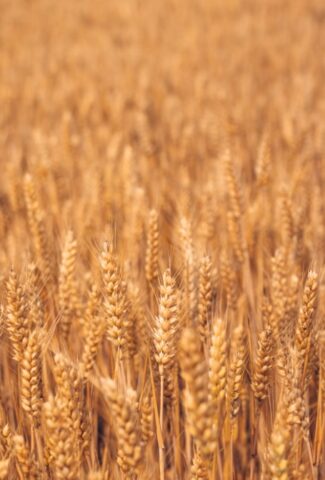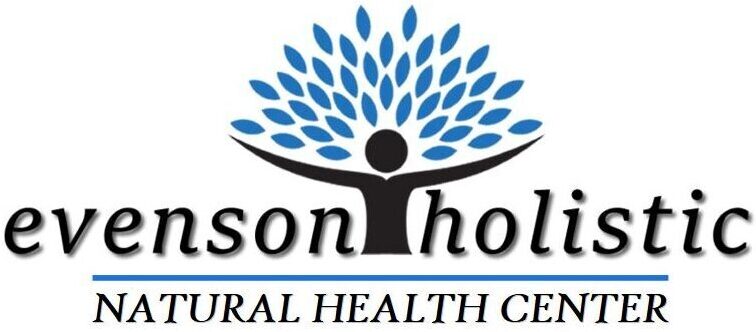
Wheat is a staple food that has been cultivated for thousands of years, and it has undergone significant changes in recent decades due to modern agricultural practices and genetic modification. Today’s wheat is different from the heritage wheat that our ancestors consumed because it has been bred to produce higher yields, resist pests and diseases, and tolerate environmental stresses.
Heritage wheat, also known as ancient or heirloom wheat, refers to the varieties of wheat that were grown before the widespread use of modern agriculture. These types of wheat are often more diverse and have a broader range of nutrients than modern wheat. Heritage wheat varieties include spelt, emmer, einkorn, and Kamut.
Modern wheat has been bred to produce higher yields, which has resulted in larger, sturdier plants with shorter stalks and more prominent heads. These characteristics make it easier to harvest and process wheat on a large scale, but they also lead to a less diverse range of nutrients in the grain.
In addition to changes in the genetic makeup of wheat, the way it is processed has also changed. Most commercial wheat products today are made from refined flour, which is stripped of the bran and germ, leaving behind only the starchy endosperm. This process removes many of the nutrients and fiber found in the whole grain.
The negative health impacts of wheat on people can vary from person to person. Some people may experience digestive issues such as bloating, gas, and diarrhea when consuming wheat due to an intolerance or allergy to gluten, a protein found in wheat. This condition is called celiac disease, and it affects approximately 1% of the population.
Others may experience non-celiac gluten sensitivity, which is a condition where people experience symptoms similar to celiac disease but do not have the characteristic intestinal damage associated with it.
Furthermore, wheat consumption has been linked to several other health issues, such as increased inflammation, insulin resistance, and an increased risk of developing type 2 diabetes. This is because wheat is high in carbohydrates and can cause a rapid rise in blood sugar levels, which can lead to insulin resistance over time.
If someone wants to wean off of eating wheat, there are several steps they can take. Here are a few suggestions:
- Replace wheat-based products with gluten-free alternatives: There are many gluten-free alternatives available for wheat-based products, such as rice flour, almond flour, coconut flour, and gluten-free oats. These can be used to make bread, pasta, and other wheat-based dishes. Some people learn to do without wheat products all together, as I have.
- Focus on whole, unprocessed foods: Instead of relying on processed wheat-based products, focus on whole, unprocessed foods like vegetables, fruits, nuts, seeds, and proteins like chicken, fish, and eggs. This will help to provide a wider range of nutrients and fiber.
- Experiment with different grains: There are many other grains besides wheat that can be used in cooking, such as quinoa, millet, amaranth, and buckwheat. These grains can be used as a substitute for wheat in recipes.
- Read labels carefully: Be sure to read labels carefully when shopping for food. Wheat can be found in many products besides bread and pasta, such as soups, sauces, and dressings. Wheat flour even shows up in licorice.
In conclusion, while wheat may be a staple food for many people, it is important to be aware of its potential negative health impacts and to take steps to wean off of it if necessary. By following the steps outlined above, you can reduce your wheat intake and improve your overall health and wellbeing.
Some Sources:
- “Wheat: The global grain trade” by Bruce M. Hockman, Food and Agriculture Organization of the United Nations, accessed March 13, 2023. http://www.fao.org/3/Y3553E/y3553e07.htm
- “The Health Benefits of Heritage Wheat” by Dr. David Perlmutter, Grain Foods Foundation, accessed March 13, 2023. https://grainfoodsfoundation.org/2019/06/the-health-benefits-of-heritage-wheat/
- “Einkorn: The First Wheat” by Bebe Black Carminito, The Old Farmer’s Almanac, accessed March 13, 2023. https://www.almanac.com/news/gardening/gardening-advice/einkorn-first-wheat
- “Ancient Grains: The Benefits and Risks of Eating Older Varieties” by Tammy Worth, Everyday Health, accessed March 13, 2023. https://www.everydayhealth.com/diet-nutrition/ancient-grains-benefits-and-risks-eating-older-varieties/
- “Celiac Disease” by National Institute of Diabetes and Digestive and Kidney Diseases, National Institutes of Health, accessed March 13, 2023. https://www.niddk.nih.gov/health-information/digestive-diseases/celiac-disease
- “Non-Celiac Gluten Sensitivity” by Columbia University Department of Medicine, accessed March 13, 2023. https://www.columbiadoctors.org/non-celiac-gluten-sensitivity
- “Gluten-free diet: What’s allowed, what’s not” by Mayo Clinic Staff, Mayo Clinic, accessed March 13, 2023. https://www.mayoclinic.org/healthy-lifestyle/nutrition-and-healthy-eating/in-depth/gluten-free-diet/art-20048530



Leave a Comment